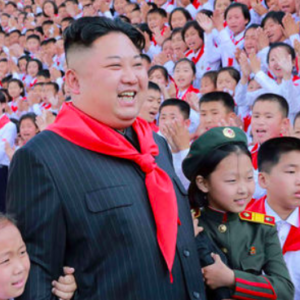Look for familiar names from the presidency of Barack Obama to deal with North Korea after the inauguration of Joseph Biden as president on January 20.
Biden, having served as vice president for two terms under Obama, knows these old-timers well and may be inclined to name some of them to influential positions in hopes, finally, of bringing North Korea to terms on its nuclear program.
The chances of North Korea leader Kim Jong-un saying, right, we agree, we’re giving up our nukes and missiles and the facilities for making them, range from nil to zero.
But Christopher Hill, who led the Americans in failed six-party talks on North Korea’s nukes, and then in frustrating negotiations with North Korea’s Kim Gye-gwan, never loses hope.
In a Biden presidency, he said on a recent panel, “There will be a little more focus on the substance of engagement and why we are willing to engage.”
That remark is a swipe at President Donald Trump, who thought all the presidents before him had failed miserably in dealing with the North and swore he had really accomplished something in his three meetings with Kim.
At least, he said — many times — he headed off a second Korean War, which he believes was imminent before he saved the day.
That claim is specious nonsense.
North Korea’s still got its nukes and missiles — more than when Trump and Kim signed their joint statement in Singapore in June 2018 pledging a “nuclear-free Korean peninsula.”
You have to wonder whether Hill really thinks, if given a high position in the Biden administration, that he could do any better than he did in the era of George W. Bush and then Obama.
“We don’t want North Korea to be a nuclear state,” he said. “Nuclear weapons in the hands of North Koreans is a little like putting matches in the hands of children.”
Nice line, but Hill, a former ambassador to South Korea and later Iraq, never got what he wanted from the North Koreans either.
Hill’s on firmer ground, however, when he states that Biden’s “first order of business is going to be to fix the alliances.”
No, he said, “it’s “not just NATO,” the North Atlantic Treaty Organization that formed the bulwark of allied defenses against the old Soviet Union in the Cold War era and now faces Russia, whose president, Vladimir Putin, definitely would prefer Trump.
For nearly four years, Trump did his best to undermine NATO, blasting its members for not contributing, cutting back on U.S. forces and — disgracefully — trying to finesse a trade-off with Ukraine on military assistance against Russia in return for Ukraine digging up dirt on Biden’s son, Hunter.
It was Trump’s gamesmanship in Ukraine that got the lower house of Congress to vote for his impeachment. That gesture failed in the Republican-controlled Senate, but the whole episode showed Trump’s subjugation of diplomacy to politics.
Similarly, he’s compromised historic alliances with America’s crucial Asian allies, Korea and Japan, trying to get both of them to pay much more of the costs of U.S. bases and defenses while weakening U.S. forces in the western Pacific.
Hovering above all considerations of Asian diplomacy, as Hill remarked, is China.
“You will see a willingness to engage,” said Hill, but he engaged in his familiar brand of wishful thinking when he said “we would agree with China, we don’t want North Korea to be a nuclear state.”
China’s President Xi Jinping has left no doubt he’s not all that concerned about North Korea’s nuclear program.
Rather, on the 70th anniversary of China’s entry into the Korean War against U.S. and South Korean troops, Xi and his propaganda machine fired off statements and editorials proclaiming their “victory” over the Americans and promising to do it all over again in defense of their North Korean ally.
Victor Cha, who advised on North Korea under George W. Bush and now is a professor and vice dean at Georgetown, was blunter.
Biden, he is confident, will adopt “a much more traditional approach, one we haven’t seen in four years,” in talking to the North Koreans.
“All the past deals have failed one way or another,” he noted. Biden might not “rule out a high-level meeting” — “but not until a lot of hard work had been completed.”
Neither Hill nor Cha wanted to say it, but there’s not much chance of a real deal with North Korea under any circumstances.
At least, however, diplomacy should be in the hands of professionals, not a bumbling tycoon stumbling unwittingly into traps set by enemies.

